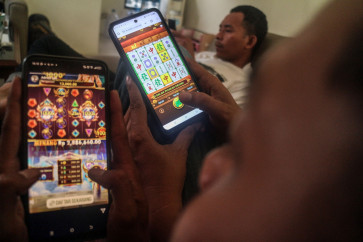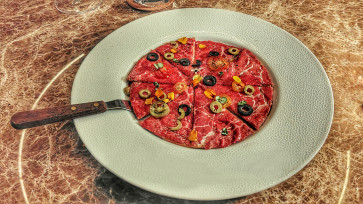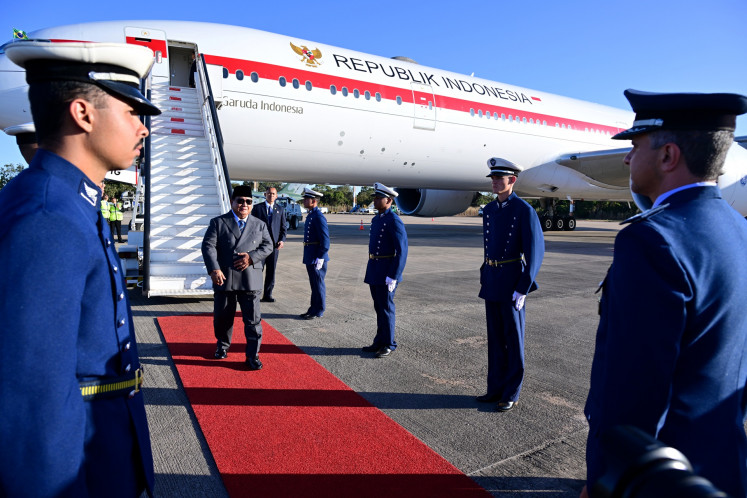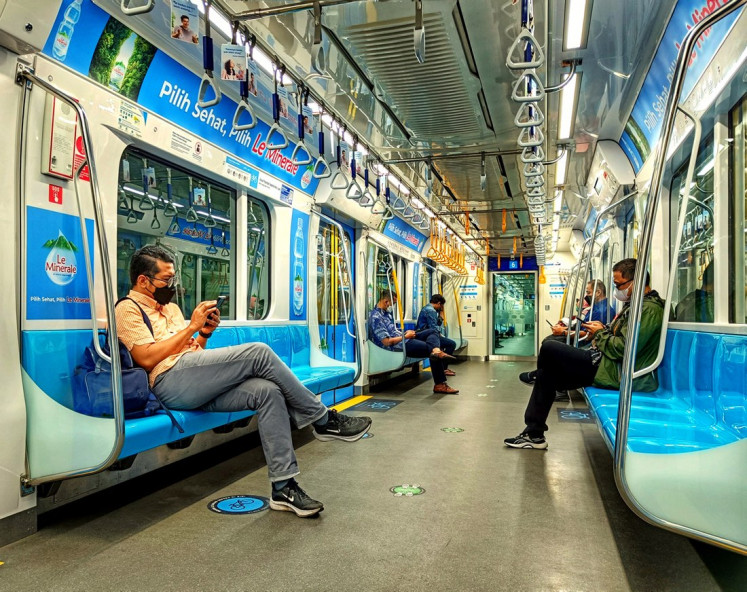Popular Reads
Top Results
Can't find what you're looking for?
View all search resultsPopular Reads
Top Results
Can't find what you're looking for?
View all search resultsJokowi's leadership could do with more compassion
President Joko âJokowiâ Widodo completed his first 100 days in office last week with mixed public reviews, but if there is one area where he has disappointed some of his fans the most, it is in his lacking the compassion and spirit of forgiveness expected from a leader who has almost all the other main humanitarian virtues
Change text size
Gift Premium Articles
to Anyone
P
resident Joko 'Jokowi' Widodo completed his first 100 days in office last week with mixed public reviews, but if there is one area where he has disappointed some of his fans the most, it is in his lacking the compassion and spirit of forgiveness expected from a leader who has almost all the other main humanitarian virtues.
Jokowi won the presidential elections in July chiefly because of his popularity among voters, rather than on his thin track record in government at the national level. The 53-year-old man from Surakarta, Central Java, displayed all the positive Javanese characteristics from humility to sincerity, virtues that are rarely found among today's politicians and leaders, but characteristics that people craved badly enough to vote for him.
But his decision at the start of his presidency to order the execution of the dozens of people on death row, there chiefly for drug trafficking, came as a big shock to some of his supporters who had hoped the new President would be more compassionate and forgiving, especially in deciding to take the lives of others.
These are virtues that would have been consistent with his other humanitarian traits.
Last month, the Attorney General's Office carried out the execution of six people who have lingered on death row for years, including five foreigners, after President Jokowi rejected their appeals for clemency, their last chance for reprieve.
The government says 11 others are now being lined up for execution. There were 64 people on death row when Jokowi ordered the executions to start as soon as he came into office in October. Unless he had a change of heart, all will be executed.
Eleventh-hour appeals for mercy from President Dilma Rousseff of Brazil and King Willem of the Netherlands to spare the lives of their citizens, who were among the six executed, were rejected. Australian Prime Minister Tony Abbott has been on the phone with Jokowi this past week asking him to spare the lives of two Australians in the list of 11 about to be executed.
Jokowi responded to these pleas by saying Indonesia is in the middle of a major war against drug trafficking and these people violated Indonesian laws that clearly stipulate death for violators.
His strong stance received widespread support from the Indonesian public. They lauded the new President for taking a stand against the menacing drug threats that have affected millions of Indonesians and their families and for standing up against foreign leaders.
It's hard to accept Jokowi's explanation that there was nothing he could do to stop the executions. He claimed it was the court that decided on the death penalty, and not him, and that the order for execution is the natural consequence of him following the law of the land.
Jokowi cannot easily wash his blood-stained hands. The Constitution grants the President the power to pardon people and he could have commuted their sentences to life imprisonment if he wanted to. When he rejects the appeals for clemency, he virtually signs their death warrants.
This episode leads to a disturbing thought that we may have elected a war-mongering and vengeful president. After declaring war on drug abuse early in his presidency, he became trapped by his own rhetoric, to the effect that he simply had to order the executions of people on death row, mostly drug traffickers, but also including sadistic murderers.
Jokowi may have won over domestic public opinion ' many in fact compared him with his predecessor Susilo Bambang Yudhoyono, whom they thought of being too lame on drug offenders. But a better comparison would be with great leaders of the past, many of whom made compassion and forgiveness as part of the virtues that raised them above others.
The late South African leader Nelson Mandela made forgiveness very much one of his leadership qualities, one reason why he won the respect and admiration of people around the world, not only of South Africans.
'Forgiveness liberates the soul. That's why it's such a powerful weapon,' Mandela once said.
'You will achieve more in this world through acts of mercy than through acts of retribution,' he said another time as he fought against demands from fellow black South Africans to take revenge against the whites for their brutality during decades of Apartheid.
Compassion and the spirit of forgiveness would make Jokowi much stronger. They are not signs of weaknesses. They would even elevate him from being just another elected politician into a true statesman.
Given all his other humanitarian traits and given that he came from a younger generation of leaders not so tainted by the violent political culture, many supporters had hoped Jokowi to lean closer toward human rights causes, including on capital punishment.
All the arguments for and against capital punishment, from legal, constitutional, moral and religious points of view, have been debated. Even the Constitutional Court was divided when it ruled five-to-four in favor of retaining the death penalty in 2008.
Public opinion is very much in favor of retention and the politician in President Jokowi has simply followed it and even strengthened it through his rhetorical statements. He could have risen above public opinion and shown compassion and forgiveness, but he chose not to.
The campaign to abolish capital punishment in Indonesia needs a public figure or an icon to tip public opinion to its side. Obviously, Jokowi is not their man.










